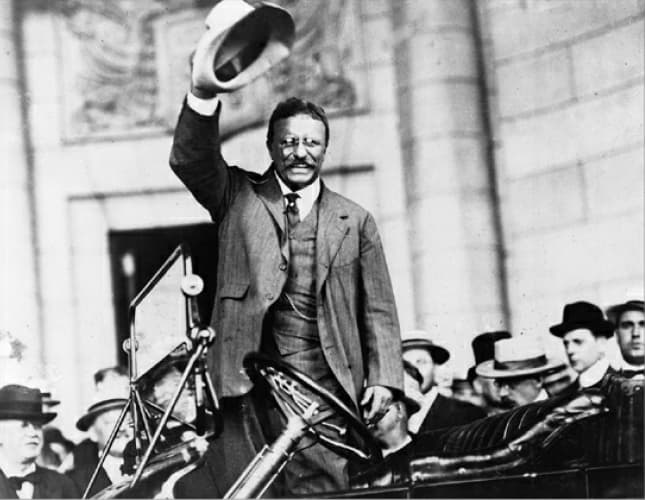Theodore Roosevelt and Henry Cabot Lodge: A Friendship Restored by Biography
What we learn after the biographer completes his story is that Lodge did his best to thwart the very kind of intimate, sensitive narrative that Laurence Jurdem has created.

‘The Rough Rider and the Professor: Theodore Roosevelt, Henry Cabot Lodge, and the Friendship that Changed American History’
By Laurence Jurdem
Pegasus Books, 464 pages
There are already plenty of good books about TR, you may say, and that stern senator best known for his opposition to Woodrow Wilson’s League of Nations, Henry Cabot Lodge, requires no refurbishment, does he?
Set aside jejune reactions and flip to the Sources section at the back of Laurence Jurdem’s book to understand the provenance of this biography and why it is essential reading. What we learn after the biographer completes his story is that Lodge did his best to thwart the very kind of intimate, sensitive narrative that Mr. Jurdem has created.
The senator attempted, in Mr. Jurdem’s words, to “paint a portrait that would present both men in a favorable light. The senator was also a professional historian who had the opportunity to create a work that if done transparently would have emerged as one of the foundational works on the life and career of Theodore Roosevelt. The fact that he was unable to do that results in The Selected Correspondence Between Theodore Roosevelt and Henry Cabot Lodge being problematic and unreliable.”
What did Lodge leave out? All the vitriol against opponents like the detestable Woodrow Wilson and his odious secretary of state, William Jennings Bryan. Such harsh words convey the depth of TR’s and Lodge’s repugnance for those Democrats who would ruin America’s world standing, leaving the country unprepared for war and sentimental about how the peace could be preserved.
In Mr. Jurdem’s book, politics is not merely a matter of policy disagreement. Lodge curbed his passions in his prose, but in his 60s punched a hostile protester. TR could have done the same.
What Lodge also redacted and that Mr. Jurdem reinstates is two young politicians who bonded over their imperialist ambitions for America and their loathing for politicos like James G. Blaine, perennial Republican candidate for the presidency whom Roosevelt and Lodge both believed was a sellout to special interests and a servant only of his own ambition.
Lodge knew from his earliest contacts with TR that the man was destined to be president — if only he could check his tendency to shun the party line and tout progressive policies that alienated the more conservative Republicans and their business interests.
After realizing that opposition to Blaine had cost Lodge some of his political standing, he never again deviated from the party line — no matter how difficult it was for him to support candidates like the boring Charles Evans Hughes, who lost to Wilson in 1916.
Lodge was aghast when TR bolted the party for the Bullmooses in 1912, guaranteeing Wilson’s victory. Yet Lodge never repudiated Roosevelt. On the contrary, even after 1912, Lodge hoped that somehow his friend would return to the White House for a third term.
Above all this is the story of a friendship that was also a love affair. It is not too much to say that Lodge was smitten with TR, even though no sexual connotation is meant by the term. In his own way, Lodge was just as rugged as Roosevelt and tolerated his friend’s excesses while others like Henry Adams found TR insufferable in the way he dominated every discussion.
Mr. Jurdem never quite says it, but I think what Lodge loved about TR is the way his friend put himself out there, taking on all comers. Lodge could do the same, but without TR’s flamboyant and big boy-like enthusiasm that bowled over even the stuffy Woodrow Wilson when they met in the White House.
So Lodge’s effort to bowdlerize the correspondence between himself and TR resulted in Lodge seeming the lesser man. What an irony, then, that this biographer’s reconstitution of what Lodge expunged restores the expunger’s humanity, which also explains why TR relied on his loyal, honest, and passionate friend.
At some points in politics there is often a falling out between close friends who depart ways on policy. Yet these two men never gave up on one another, and managed 35 years of friendship — no matter the strains — that called upon their noblest sentiments.
Biography, in Mr. Jurdem’s capable hands, becomes an act of restoration.
Mr. Rollyson’s work in progress is “Making the American Presidency: How Biographers Shape History.”

